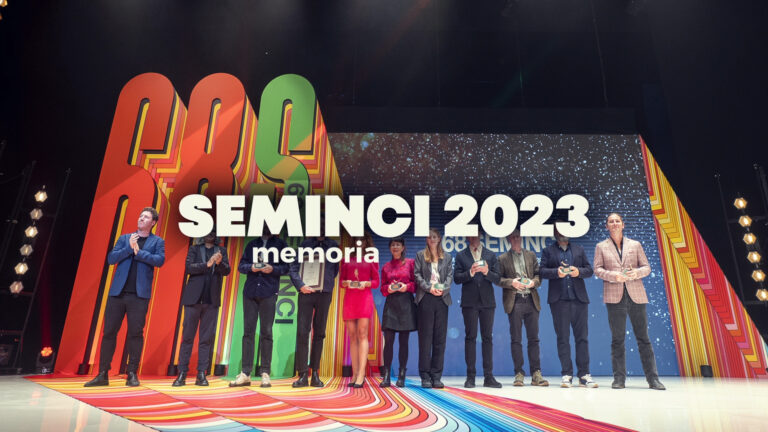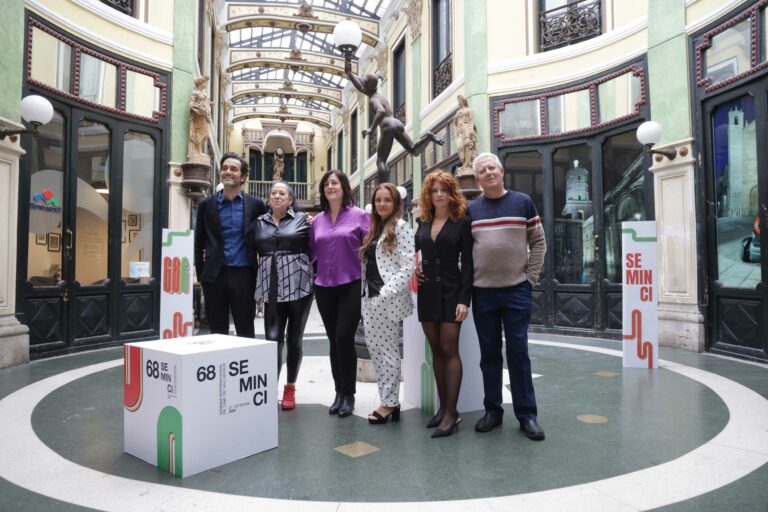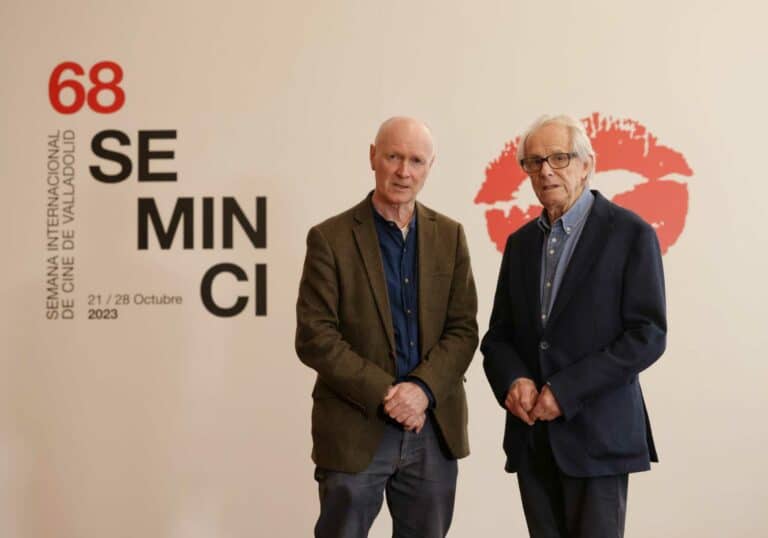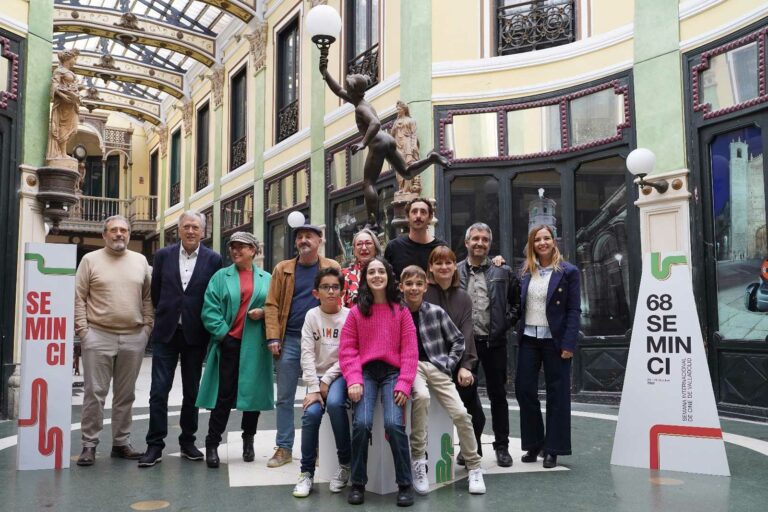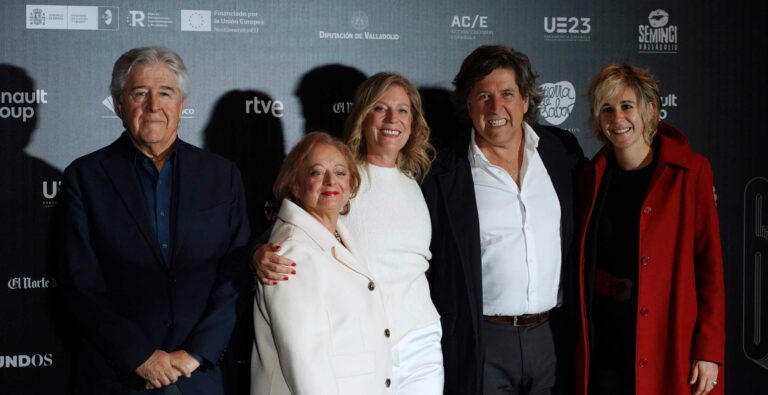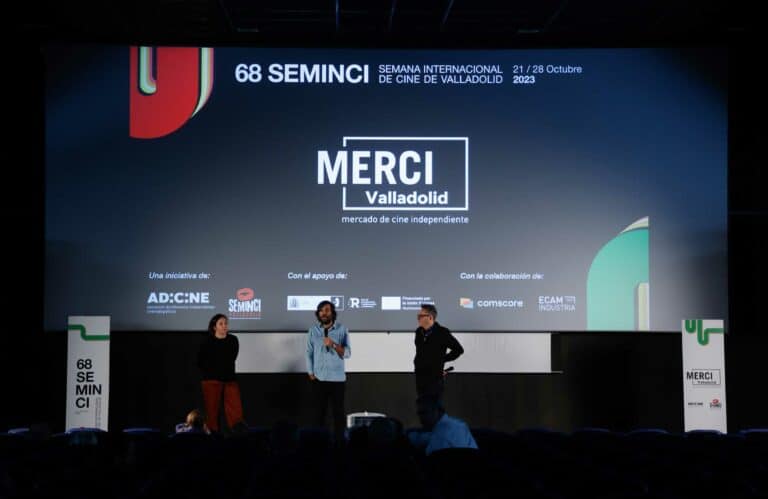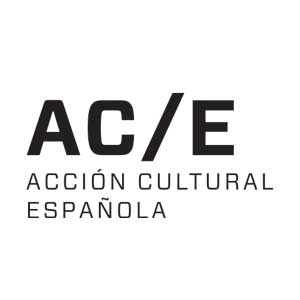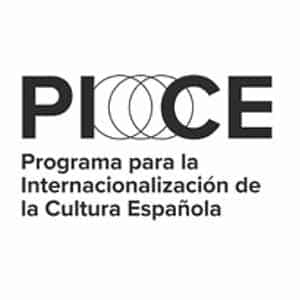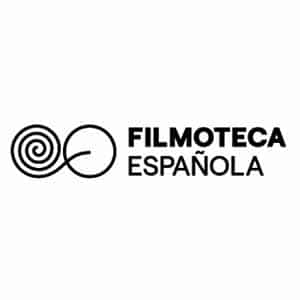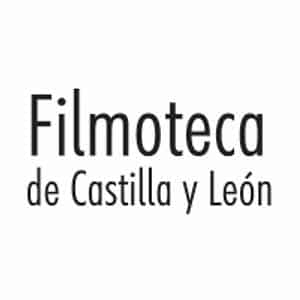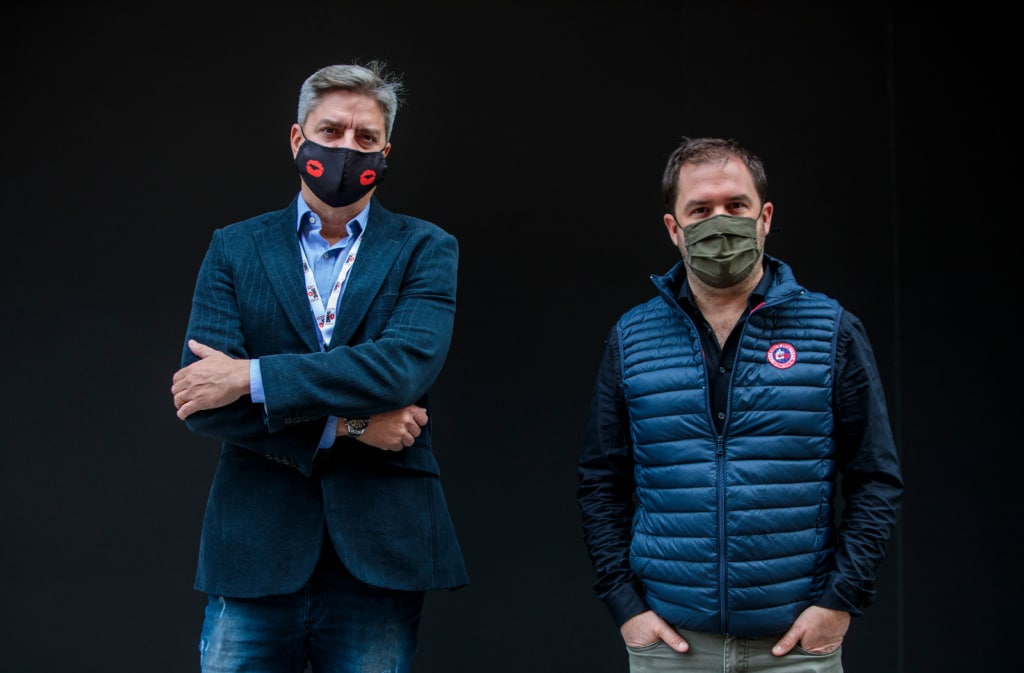
28/10/2020.- The discovery of the work of Josep Bartoli, a Catalan exiled in France in the Spanish civil war, was the starting point for Josep, the first animation feature film by Aurel, a cartoonist at Le Monde, and his second film after his short film Octobre Noir, which reflects the demonstrations of 17 October, 1961 in Paris. This new film is again a work that narrates real events.
During the film’s official presentation this morning at the 65th Valladolid International Film Festival, the director himself explained how the project came to be: “I first discovered Josep Bartoli’s work thanks to a book written by his nephew about his family’s exile, which is illustrated by Bartoli’s drawings. These are mostly drawings made in concentration camps in the south of France, so it brings together two of my passions: drawing, and the Spanish civil war.”
However, from the starting point until its completion, the film underwent a certain transformation. “There are several themes in this film”, explained Aurel. “For me, the main one is drawing. At first it was Josep, but he went into the background during the process of working on the film. The main character that allows me to talk about drawing is Josep, and that character, when talking about his life, also allows us to talk about the history of exile and the Spanish civil war.”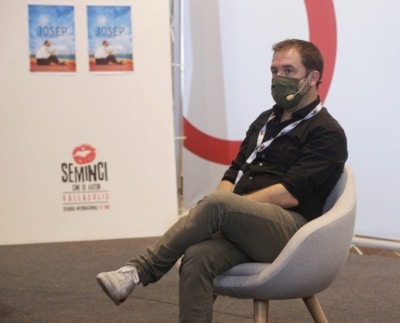
Josep’s evolution as a sketcher and painter is another of the key topics. For Aurel, the line is more important than painting, but Josep experienced an evolution in this sense, and the fact that he and Frida Kalho were lovers also played a role.
When asked if he gave more importance to lines or colours, he was clear: “It’s lines for me, and that is also part of the tribute to drawing: the line is the most important element. How it looks and how it is drawn, with what tool, for example. Colour, for me, is another tool, but I am not a painter, I am a sketcher, and therefore I care about the line.”
Regarding Bartoli’s application of lines or colours, Aurel explained this evolution: “The differences between graphic universes have to do with Josep’s stages. From the concentration camps, where he only had a pencil and bad paper, to his time in Mexico, where he began trying to colour his drawings, or his time in New York. At the end of his life, he was almost abstract; he had removed the line, but there was still a very high level of drawing. All the parts of the film try to be a tribute to the different stages of Josep’s artistic life.”
A production bet
The film will hit Spanish commercial theatres on 4 December this year, and will do so with the support of Filmin, whose main activity is online streaming. Paradoxical? Jordi Oliva, producer of the film from Filmin, explained the reason: “There is an agreement to release the film in theatres first, and the distributor is Filmin Cinema, the platform’s new distribution branch. In France, 170,000 spectators have already paid to see this film on the big screen, but in Spain there is not such a great tradition of animation films for adult audiences, and this premiere also takes place at a very delicate moment. It is a very strong bet by Filmin on Josep, but we hope that the public will support us.”
The producer’s support goes way back to when he fell in love with the project. “If we only look at the economic scales, we all know that it’s a difficult film, starting with the theme: exile and historical memory; but precisely because there is a lack of historical memory we had to tell this story.”
A script in the hands of Jean-Louis Milesi
The producer wasn’t the only one excited about the new movie. For this project, Aurel approached Guédiguian’s scriptwriter, Jean-Louis Milesi, who agreed to join the adventure as soon as he heard the idea. “I really like Robert Guédiguian’s films, and what most interested me is how Jean-Luis Milesi is capable of telling a story that can be sad or difficult or with an important social background, but always with humour and great humanity. He is capable of telling the story of ordinary people and making their daily lives gigantic. That really interested me about his work.”
EL MÁRTIR, a short film that focuses on the female emotional universe
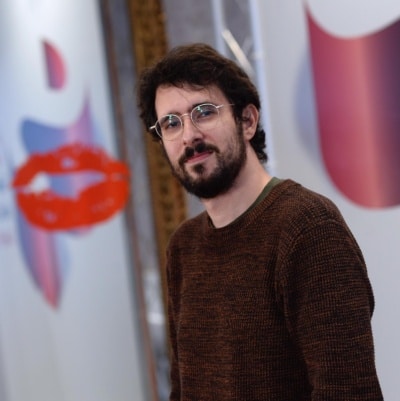 Along with Aurel’s feature film, Josep, Fenando Pomares’s short film El Mártir was screened at the 65th Film Festival. Pomares assures that the project was born long before the pandemic, as a result of a desire to get closer to tragedies that seem distant, such as families broken by the deaths in the Mediterranean. The film, according to its director, speculates on the idea of finding oneself in the other.
Along with Aurel’s feature film, Josep, Fenando Pomares’s short film El Mártir was screened at the 65th Film Festival. Pomares assures that the project was born long before the pandemic, as a result of a desire to get closer to tragedies that seem distant, such as families broken by the deaths in the Mediterranean. The film, according to its director, speculates on the idea of finding oneself in the other.
Regarding the narrative structure from a female character, Pomares says he is convinced that femininity is the only path towards a better world. “To find ourselves in emotions and in how we feel. For me, it was a way of recovering a part of myself that has been destroyed on many levels in men.”


